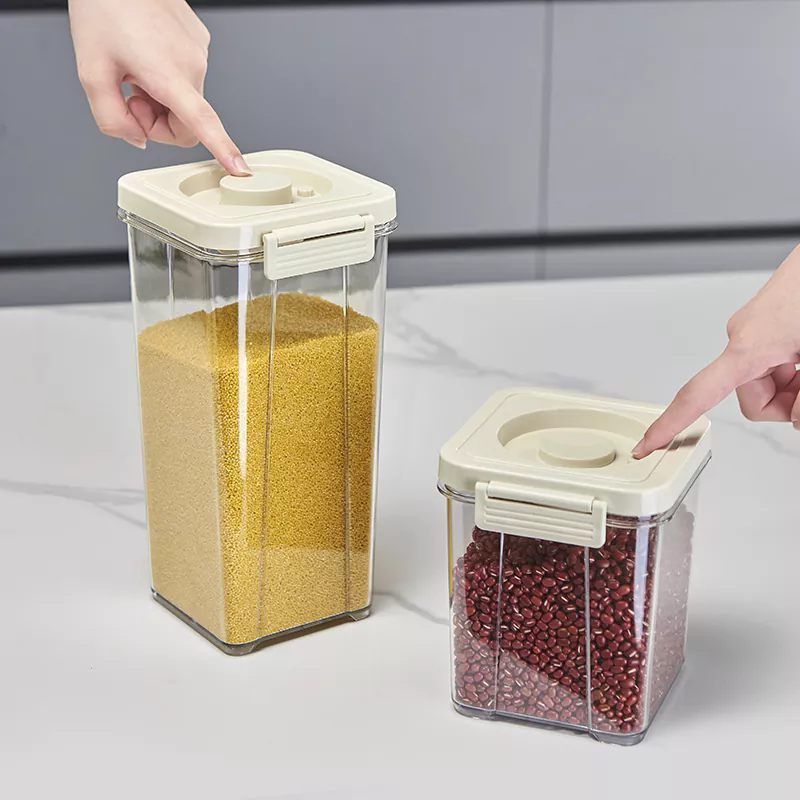The Benefits and Uses of Vacuum Containers for Food Preservation
2024-08-21
In the quest for better food preservation and longer shelf life, vacuum containers have emerged as an essential tool in modern kitchens. These innovative containers use advanced technology to remove air from their interiors, creating a vacuum seal that helps keep food fresh for extended periods. Whether you’re a home cook looking to reduce food waste or a culinary enthusiast interested in preserving the quality of your ingredients, vacuum containers offer numerous benefits. This blog explores the advantages, types, and uses of vacuum containers for food, providing insights into how they can enhance your food storage practices.
What Are Vacuum Containers?
Vacuum containers are specialized storage solutions designed to create an airtight environment by removing air from inside the container. This is typically achieved using a vacuum pump or built-in vacuum system that extracts air before sealing the container. The absence of air reduces the growth of bacteria and mold, slows down the oxidation process, and helps maintain the food’s freshness, flavor, and nutritional value.
Benefits of Using Vacuum Containers for Food
1. Extended Shelf Life:
The primary benefit of vacuum containers is their ability to significantly extend the shelf life of food. By removing air, these containers slow down the degradation process caused by oxygen exposure, which helps prevent spoilage and keeps food fresh for longer periods.
2. Reduced Food Waste:
Vacuum containers help reduce food waste by preserving leftovers and bulk ingredients. By storing food in vacuum-sealed containers, you can keep it fresh and usable for extended periods, minimizing the need to throw away expired or spoiled items.
3. Preservation of Flavor and Nutrients:
Vacuum containers help retain the flavor, texture, and nutritional value of food. Without exposure to air, food is less likely to lose its taste or become stale, and nutrients are preserved more effectively.
4. Prevention of Freezer Burn:
For frozen foods, vacuum containers are particularly effective at preventing freezer burn, which occurs when air comes into contact with the surface of frozen food. The vacuum seal helps protect against freezer burn, ensuring that food remains flavorful and high-quality.
5. Space Efficiency:
Vacuum-sealed containers can be more space-efficient than traditional storage options. By removing air, vacuum-sealed bags and containers can be compacted, making them easier to stack and store in your pantry or freezer.
6. Improved Organization:
Vacuum containers help keep your kitchen organized by providing a neat and tidy way to store ingredients and leftovers. They are often stackable and come in various sizes, allowing for easy organization and access to your food items.
Types of Vacuum Containers
1. Vacuum-Sealed Bags:
These are flexible bags that are vacuum-sealed using a vacuum sealer machine. They are ideal for storing dry foods, leftovers, and bulk ingredients. Vacuum-sealed bags are also commonly used for sous vide cooking.
2. Vacuum-Sealed Canisters:
These containers are rigid and designed to be used with a vacuum pump or built-in vacuum system. They are suitable for storing dry goods, snacks, and ingredients that need to be kept fresh without the risk of crushing.
3. Vacuum-Sealed Jars:
Vacuum-sealed jars are glass containers equipped with a vacuum-sealing lid. They are perfect for storing liquids, preserves, and dry foods. The glass construction allows for visibility and is ideal for items like spices, herbs, and grains.
4. Vacuum-Sealed Food Savers:
These are multi-purpose appliances that come with various accessories, including bags, canisters, and jars. They offer convenience by providing a complete solution for vacuum-sealing different types of food and containers.
Applications of Vacuum Containers
1. Food Storage:
Vacuum containers are used for storing a wide range of foods, including meat, poultry, seafood, vegetables, fruits, grains, and leftovers. By keeping food fresh and free from air exposure, vacuum containers help maintain the quality and extend the shelf life of your ingredients.
2. Freezer Storage:
For items that are stored in the freezer, vacuum containers prevent freezer burn and keep frozen food in optimal condition. They are ideal for storing meats, soups, sauces, and other items that need to be preserved for extended periods.
3. Sous Vide Cooking:
Vacuum-sealed bags are commonly used in sous vide cooking, a technique where food is cooked in a vacuum-sealed bag in a water bath at a precise temperature. This method ensures even cooking and enhances the flavor and texture of the food.
4. Meal Prep:
Vacuum containers are useful for meal prepping, allowing you to prepare and store meals in advance. By vacuum-sealing individual portions, you can easily grab and go with pre-prepared meals that stay fresh and delicious.
5. Preserving Fresh Produce:
Vacuum containers are effective for preserving the freshness of fruits and vegetables. By sealing produce in vacuum containers, you can keep them crisp and flavorful, reducing waste and extending their usability.
Choosing the Right Vacuum Container
1. Container Material:
Choose vacuum containers made from high-quality materials that are durable and suitable for your storage needs. Options include plastic, glass, and stainless steel, each offering different benefits.
2. Size and Capacity:
Consider the size and capacity of the vacuum container based on what you plan to store. Various sizes are available to accommodate everything from small snacks to large bulk items.
3. Vacuum Mechanism:
Select a vacuum container with a reliable vacuum mechanism. Some containers come with built-in pumps, while others require an external vacuum sealer. Choose based on convenience and compatibility with your existing equipment.
4. Ease of Use and Cleaning:
Look for containers that are easy to use and clean. Removable parts and dishwasher-safe components can simplify maintenance and ensure hygiene.
5. Compatibility with Accessories:
If you already own a vacuum sealer, ensure that the containers you choose are compatible with your existing accessories and vacuum systems.
Care and Maintenance of Vacuum Containers
1. Regular Cleaning:
Clean vacuum containers regularly to prevent the buildup of residues and odors. Follow manufacturer instructions for washing and drying to maintain the container’s performance.
2. Inspect Seals:
Periodically check the seals and gaskets of your vacuum containers to ensure they are intact and functioning properly. Replace any damaged parts to maintain an effective vacuum seal.
3. Store Properly:
Store vacuum containers in a clean, dry environment to avoid contamination and damage. Proper storage helps prolong the life of the containers and maintains their effectiveness.
Conclusion
Vacuum containers offer an innovative and effective solution for food preservation, providing numerous benefits including extended shelf life, reduced food waste, and improved organization. With various types and applications, these containers cater to a wide range of needs, from everyday food storage to specialized cooking techniques. By choosing the right vacuum containers and using them effectively, you can enhance your food storage practices, maintain the quality of your ingredients, and enjoy fresher, longer-lasting food. Embrace the advantages of vacuum containers and experience the difference they make in your kitchen and beyond.



